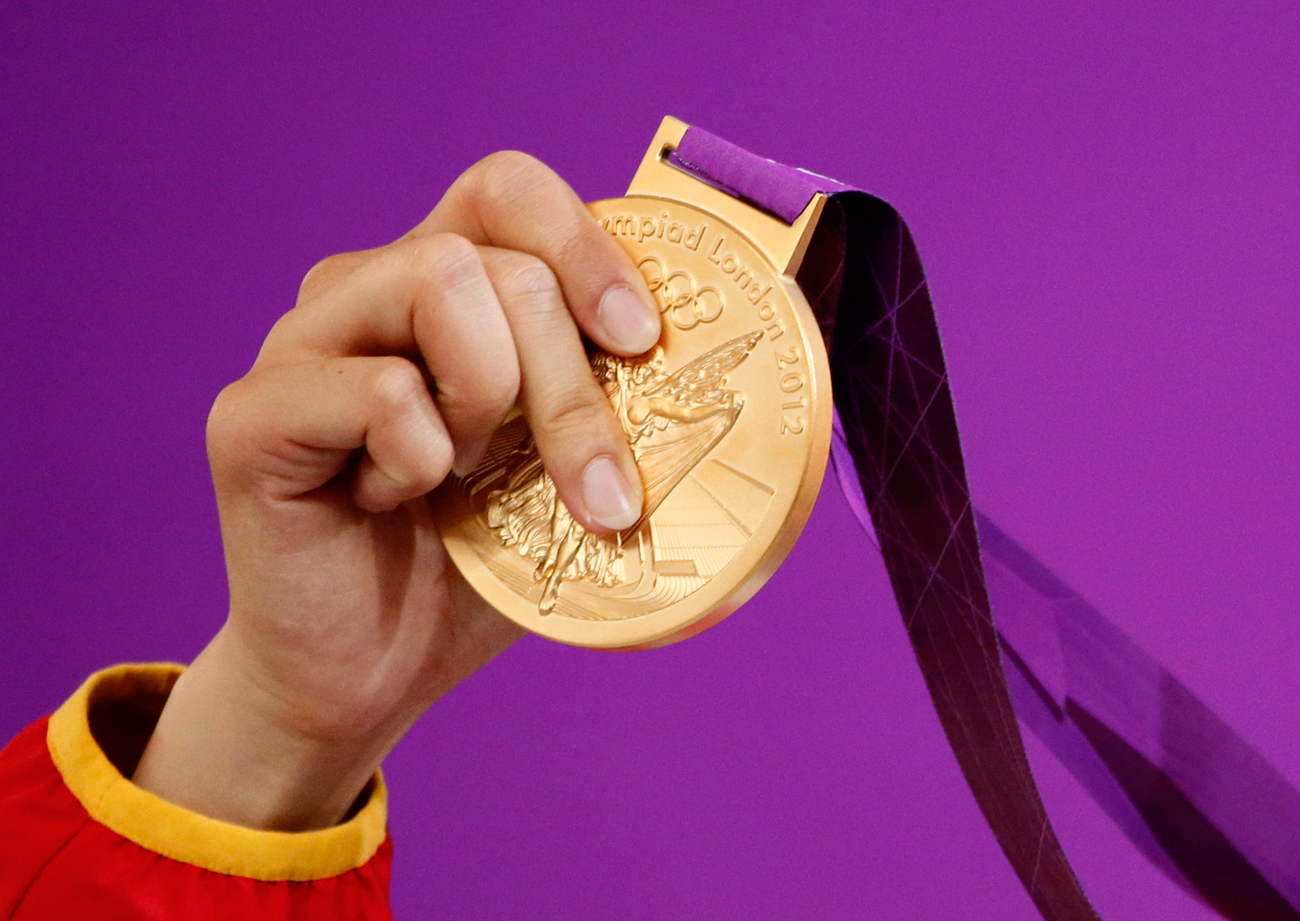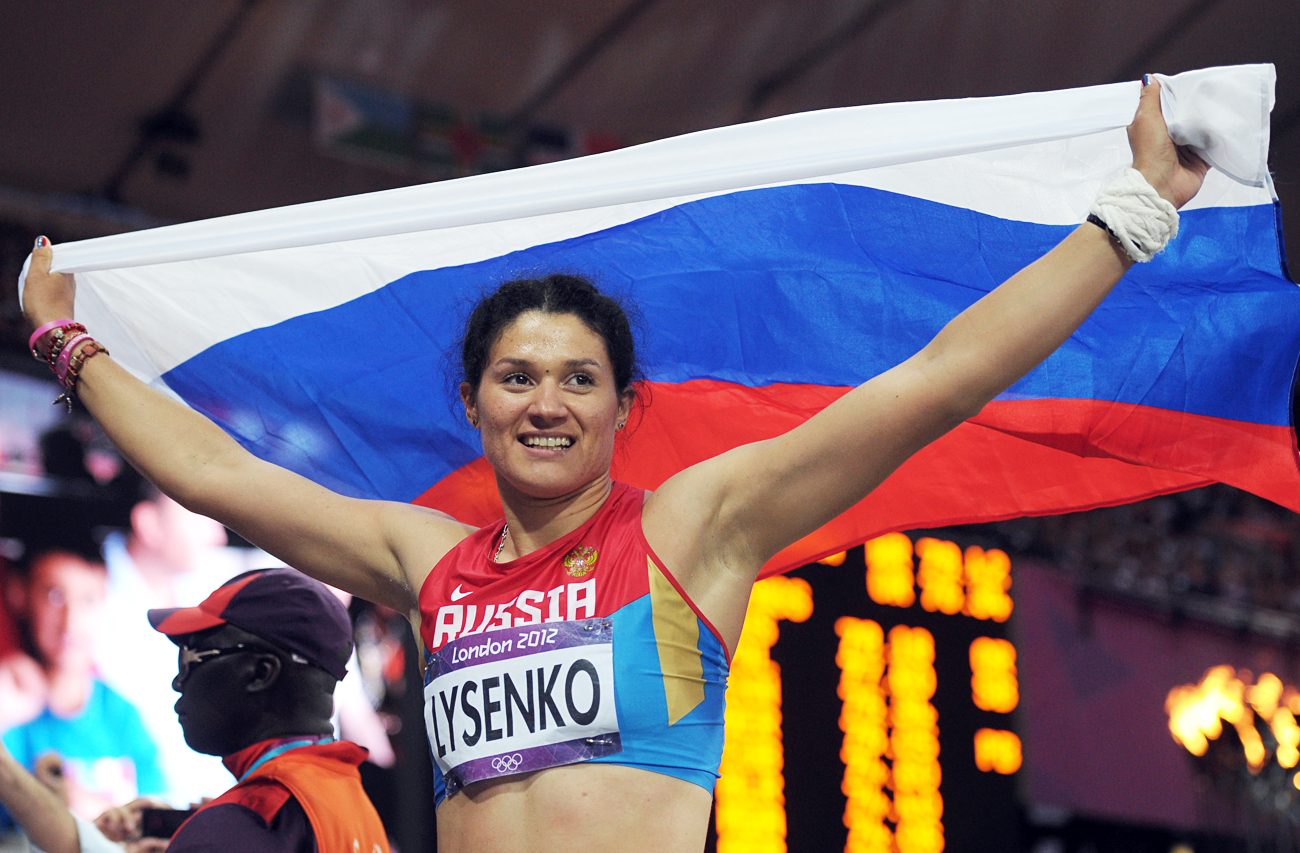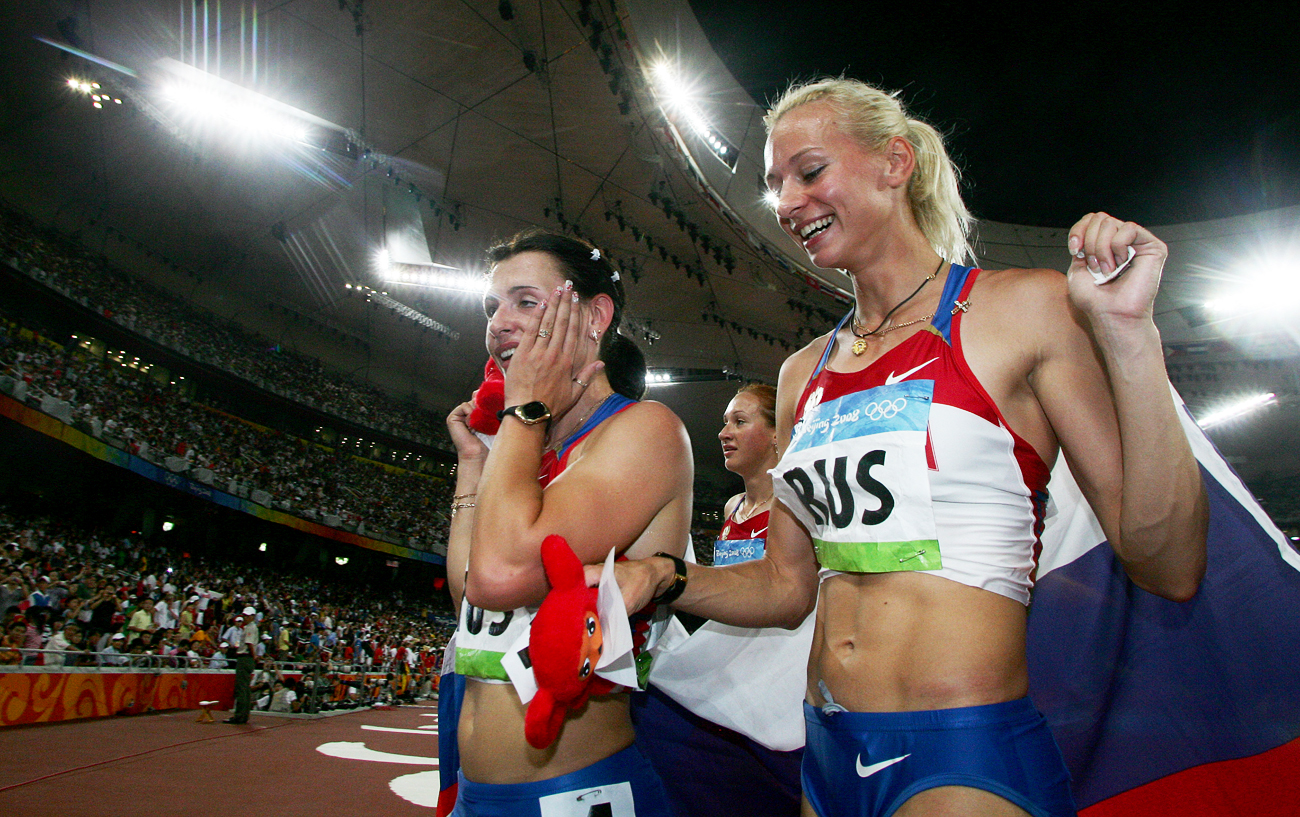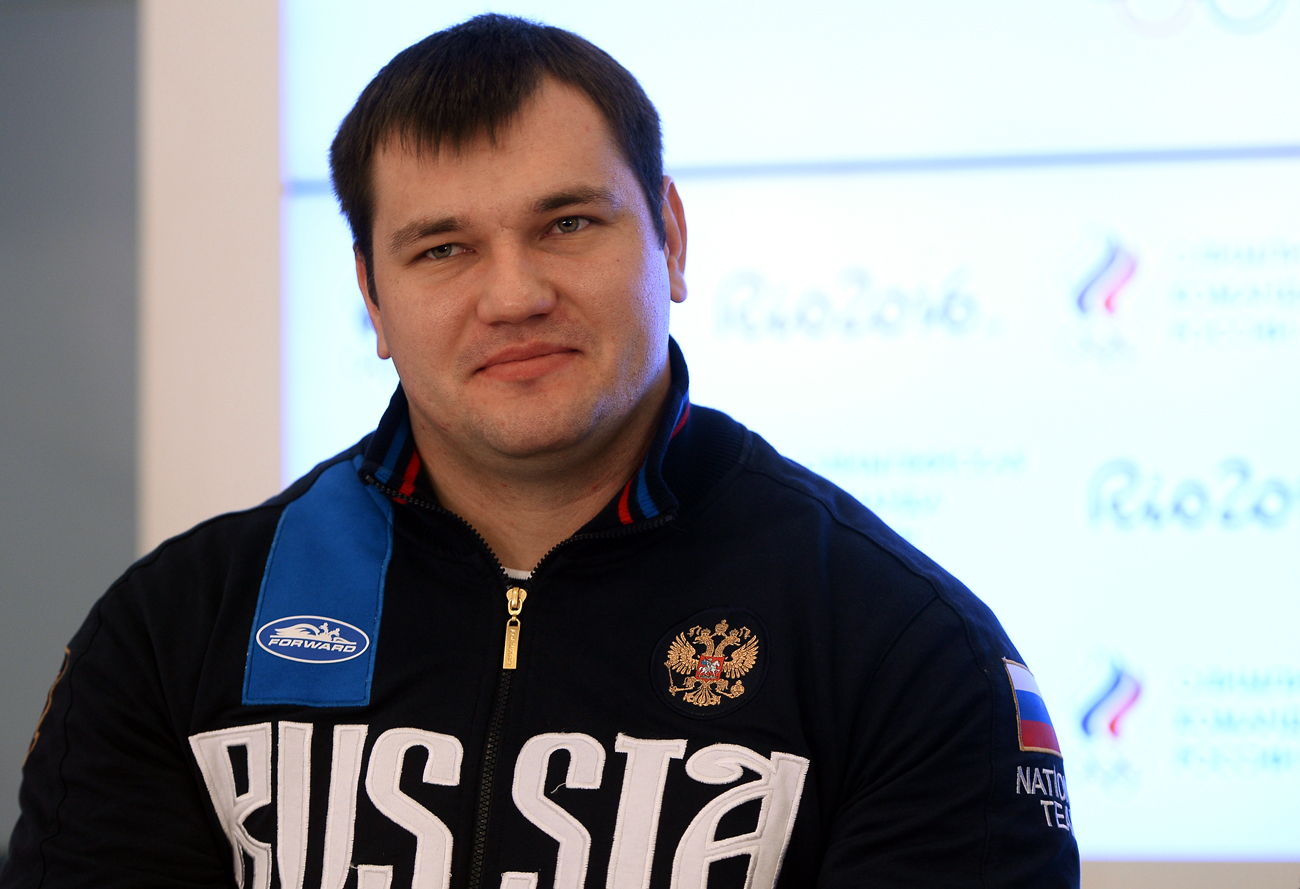
According to the rules of the IOC, Olympic medalists whose results are annulled are obliged to return their medals.
ReutersThe dark cloud that has hung over Russian sports for the last two years continues to plague the country as more and more cases of doping come to light from past Olympic events.
On Oct. 18, the International Olympic Committee (IOC) stripped Russian weightlifter Apti Aukhadov of his silver medal from the 2012 Olympic Games in London. It was the 10th such decision for Russian athletes in the last six months.
Earlier, the IOC annulled the results of a large group of Russian track-and-field athletes and weight lifters from the 2008 and 2012 Olympics in Beijing and London. The sad list includes 2012 Olympic hammer throw champion Tatyana Lysenko and the 2008 Games' 4x100-meter relay gold medalist Yulia Chermoshanskaya.
 Russia's Tatyana Lysenko wins the gold medal in the hammer throw finals at the 30th Summer Olympic Games in London. / Source: Grigoriy Sisoev/RIA Novosti
Russia's Tatyana Lysenko wins the gold medal in the hammer throw finals at the 30th Summer Olympic Games in London. / Source: Grigoriy Sisoev/RIA Novosti
The IOC announced the first wave of rechecks of doping samples from the 2008 and 2012 Olympic Games as early as 2015, and launched a full-scale campaign in early spring 2016. It is wholly possible that representatives of the winter sports will suffer in the near future as well.
Following the shocking revelations in May by Grigory Rodchenkov, former head of Moscow's anti-doping laboratory, to the New York Times that Russia had been running a state doping program aimed at winning at the 2014 Winter Olympics, the IOC announced its intention to recheck samples from the 2014 Games in Sochi as well.
According to the rules of the IOC, Olympic medalists whose results are annulled are obliged to return their medals. However, Russian athletes rarely step forward and do this. According to Alexandra Brilliantova, head of legal department of the Russian Olympic Committee (ROC), there is no specific mechanism to regulate this process in Russia.
 Russia's Yulia Gushchina and Yulia Chermoshanskaya (left to right) celebrate after winning gold in the women's 4x100m relay at the Beijing Olympic Games / Source: Vitaly Belousov/TASS
Russia's Yulia Gushchina and Yulia Chermoshanskaya (left to right) celebrate after winning gold in the women's 4x100m relay at the Beijing Olympic Games / Source: Vitaly Belousov/TASS
The Russian athletes also keep any bonuses they have been awarded by the state, although discussions about the need for them to return such payments have been going on for a long time. However, athletes often simply have nothing to return.
The State Duma's deputy speaker Igor Lebedev, who stands for the criminalization of doping, does not consider it necessary to oblige athletes to return bonuses.
"They are already punished by being stripped of medals," he said in a conversation with RBTH. "We are sometimes indignant that Olympic champions received a car and put it up for sale on the next day. But what to be indignant about – athletes have no money."
Four-time Olympic biathlon champion Alexander Tikhonov agrees with Lebedev. "They are not football players, who have something to return," he told RBTH. "And what about the others? How could they return their bonuses? They have simply nothing to return."
It is too early to predict the fate of the athletes who were stripped of Olympic medals, However, the experience of their colleagues stripped of awards for doping shows that despite their crimes, many offenders continue to work in the sports system as coaches and even functionaries.
A telling example came this summer when weightlifter Alexei Lovchev was appointed sports adviser to the Vladimir Region's governor. The appointment occurred only two months after the 27-year-old athlete was disqualified for four years for using the banned substance Ipamorelin.
 Russian weightlifter Alexei Lovchev at a news conference by the Russian Weightlifting Federation in Moscow / Source: Maksim Blinov/RIA Novosti
Russian weightlifter Alexei Lovchev at a news conference by the Russian Weightlifting Federation in Moscow / Source: Maksim Blinov/RIA Novosti
And Lovchev is not the only one. Five-time Olympic ski champion Larisa Lazutina, stripped of one gold and two silver medals from the 2002 Salt Lake City Olympics, serves as a deputy in the Moscow Regional Duma.
Her colleague, six-time Olympic champion Lyubov Yegorova, also served a suspension for doping in 1997-1999, which incredibly has not prevented her from serving as a St. Petersburg Legislative Assembly member since March 2006.
Many athletes with a bad reputation are also involved in promoting sport at the level of federations and regional sports centers.
Deputy speaker Igor Lebedev believes that athletes found guilty of doping should not be allowed to serve as public officials. However, he does not see anything wrong if these athletes continue to work in their field.
"This won't have much impact on the reputation of sports communities," Lebedev told RBTH. "I think they will be able to teach young people a lot, except for doping, of course."
In turn, Tikhonov advocates for dealing with each case individually, while fighting the system that allows doping abuse.
"What should we do now – expel a person [from sports –RBTH] for life?" Tikhonov said to RBTH. "Another question is, who contributed to this [the use of doping – RBTH]? Coaches, medics. Where is at least one who was punished, where are our experts – qualified pharmacologists and sports doctors? We have 15 sports universities in the country, but there is no single department of sports medicine anywhere. That's what we should be talking about."
All rights reserved by Rossiyskaya Gazeta.
Subscribe
to our newsletter!
Get the week's best stories straight to your inbox